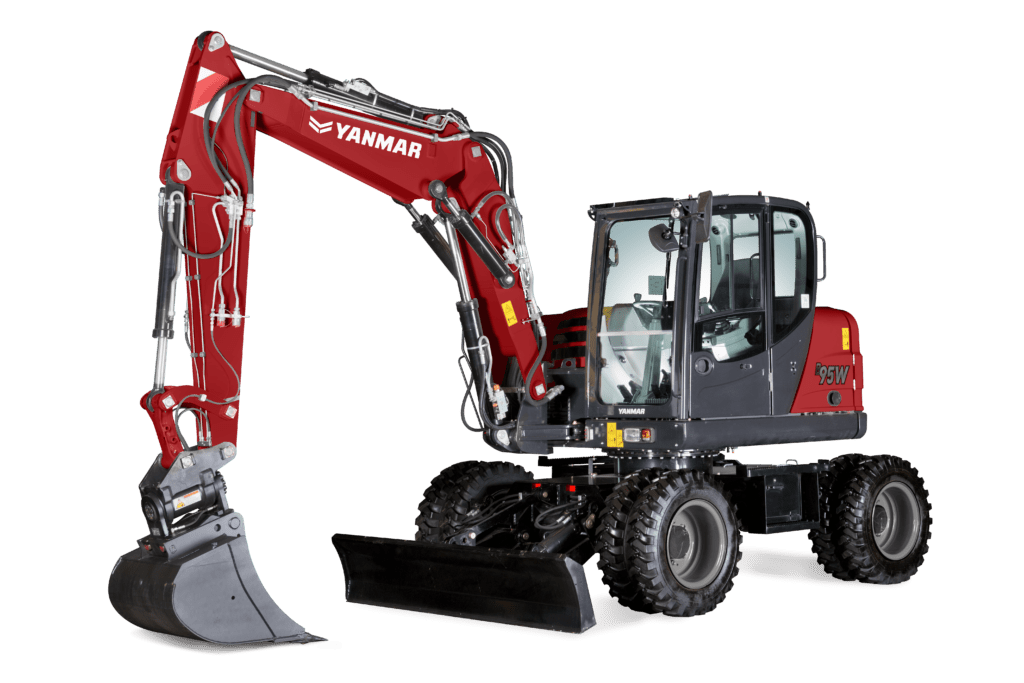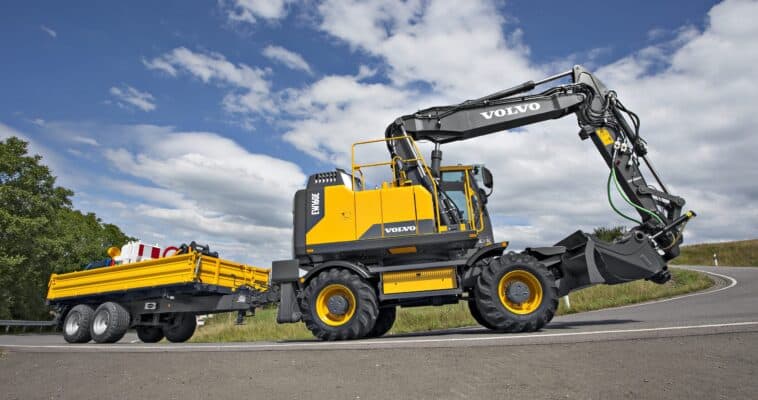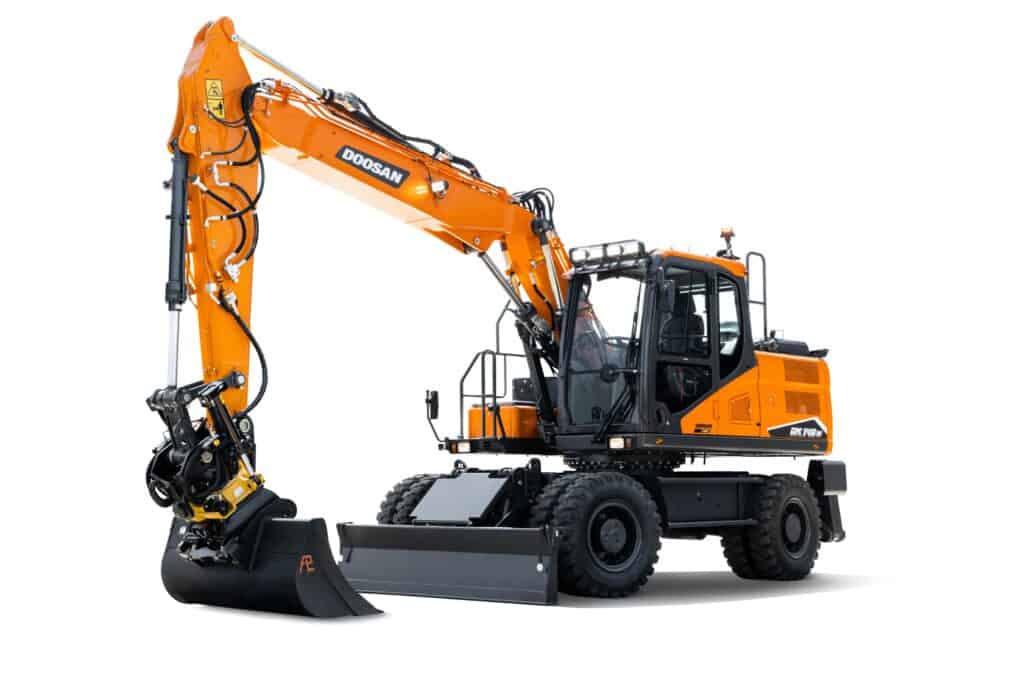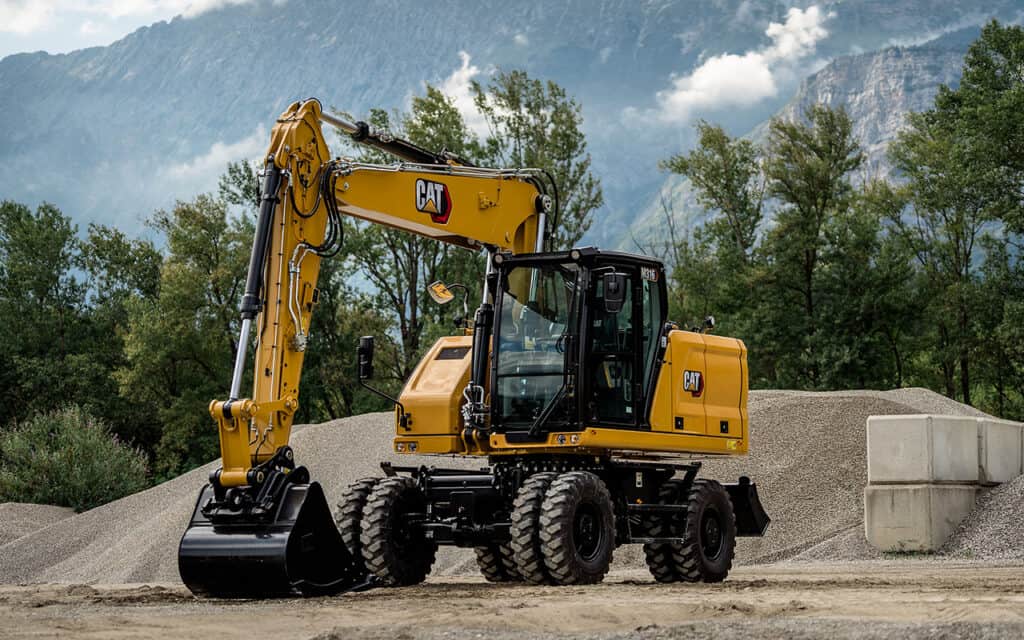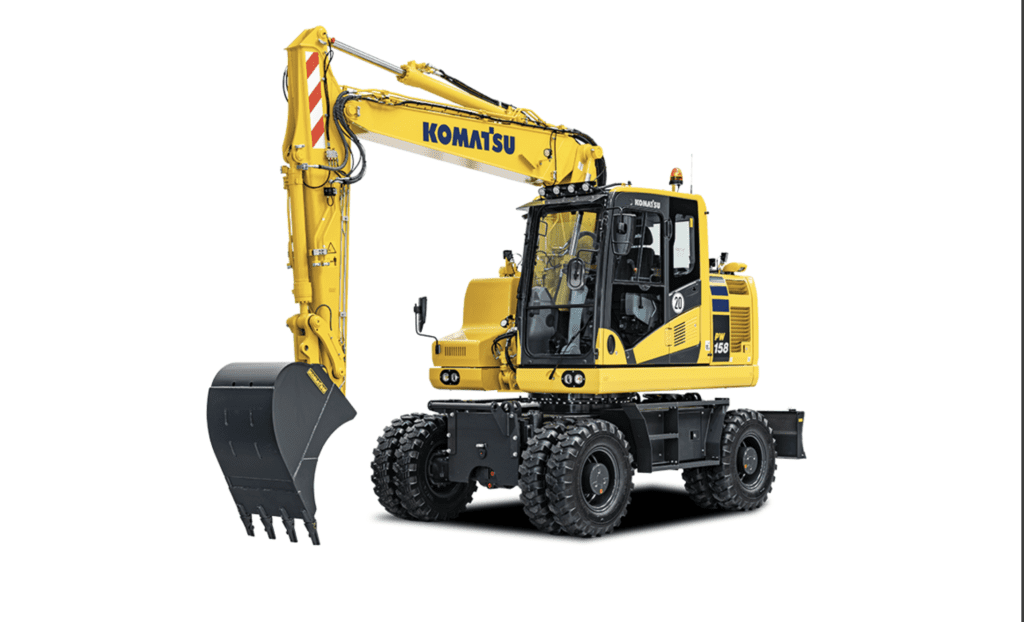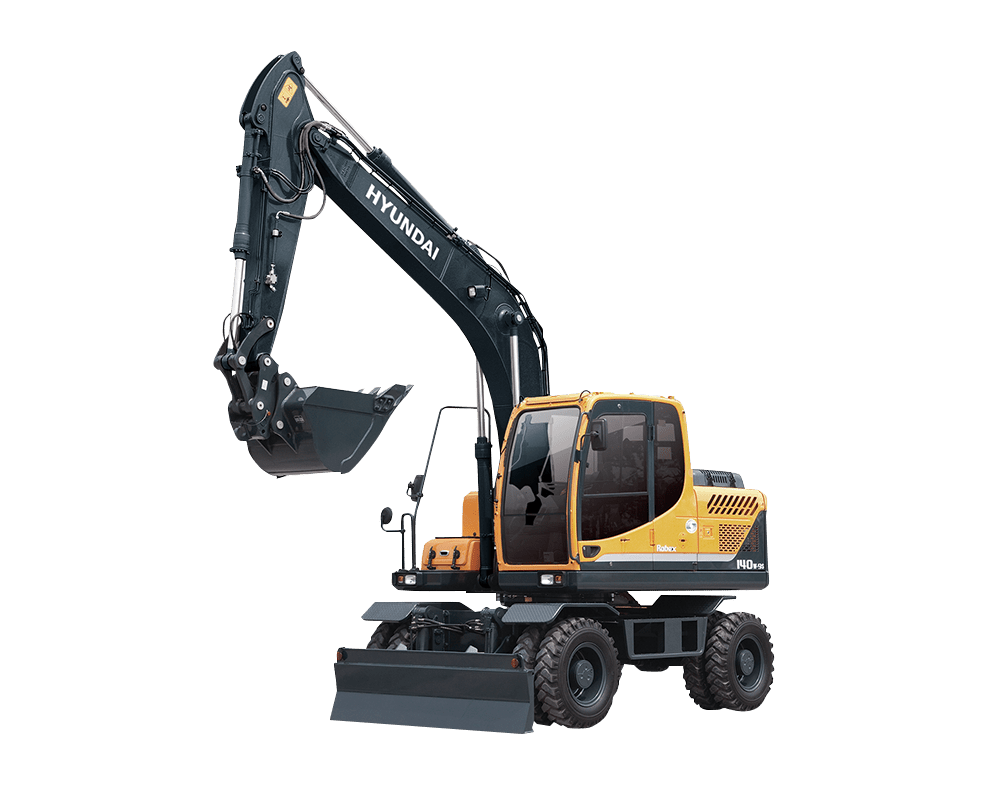Introduction:
An excavator can be one of the most powerful and important pieces of equipment at a job site. Having the right excavator can mean the difference between getting your work done quickly and meeting deadlines, versus having to work later, missing your deadlines, and having a very unhappy client. In that way, it’s important to find the reliable mini-wheeled excavator suppliers.
Although we’re happy to help you figure out the perfect excavator to meet your needs, it’s always a good idea to have a sense of what you require before you head to the heavy equipment dealer near you to get the machinery you need. Let’s take a quick look at some of your options and some of the ways you can narrow down your choices to pick just the right one.
Ultimately, the right mini-wheeled excavator will really depend on the types of jobs you typically handle and the kind of requirements you need them to meet. While you might have some tasks that fall outside of your everyday use, in general, it’s going to make your life easier to match a wheeled excavator to what you need the majority of the time. Remember to be accurate when estimating what you need, and give yourself some wiggle room. This article will teach you how to find reliable mini-wheeled excavator suppliers.
How to find reliable mini-wheeled excavator suppliers?
Get a dealer inspection report:
If this is all too overwhelming for you, especially those who are still finding their feet in the industry, then get help! This is especially important if you’re buying from a private seller. Depending on your experience and level of investment, a dealer or independent machine inspection is advisable. This can be carried out by a dealer or a factory-trained technician who is familiar with the equipment. They should possess the necessary tools for downloads, history, alerts, and so on. The inspection may also establish if any factory updates or improvements are available. Getting a dealer involved can assist you in a few ways. A lot of guys will start off in the industry using second-hand machines, and might not have adequate knowledge of the machines they’re looking at. This is where a dealer can help in which they will come out and do a full report for you as they know what to look for in a machine. If it’s a larger machine with an electronic dash, we can make sure that the hours are correct on the machine as well. The small expense of paying a dealer or someone who can check that for you can save you a lot of money. Reliable mini-wheeled excavator suppliers could be found easily.
Beware of grey imports:
Grey imports are generally not supported by the manufacturers in Australia, so be very careful what you buy. We have seen people caught before, where the company importing them will say they’ve got a warranty with the manufacturer, where in fact the manufacturer doesn’t support it here because it wasn’t brought into the country through the correct channels.
The biggest reason to buy through the correct channels is the warranty, but some machines are also built to different specifications for different regions. For example, a North American or Japanese machine may be built to different specifications or have fewer features than an Australian machine.
Factor ongoing maintenance costs into the price:
If you see a price on a machine that seems too good to be true, you’re probably right. It could be a machine that has done a good amount of hours and has been put through its absolute limits, and might not be a good option for you if you’re looking to get several more years of work out of it. Ongoing maintenance costs such as regular service costs, wear parts and fuel usage rates must be factored into the cost when you’re buying a machine. Say someone coming into the market has $80,000 that they can put toward a 20-tonne excavator. They’d probably be looking at a machine with high hours, so they will have to anticipate spending a good amount of money maintaining the machine over the next few years. There’s no point in putting everything you’ve got into that wheeled excavator and then two months down the track, you need to spend money on it that you don’t have. All you end up with is a wheeled excavator that has broken down and is not making you any money. In another example, if the undercarriage of the machine you’re looking at right now has only 30 percent of life left, that means you will have to put a significant amount of money into replacing it this time next year or sooner. If you know what repairs are needed on the machine in the near future, contact your dealer or a parts supplier and get a quote for those parts so you have an idea of how much it’s going to cost.
Consider your needs and options:
This is one of the most important points to keep in mind, considering the amount of money that you will be investing in the excavator. Is the particular machine you’re looking at suitable for the task it’s intended for? It may be underpowered, too wide, too heavy, not have enough reach, won’t have the power to run the attachments, and so on. Newcomers should discuss the decision with an experienced person and someone they trust, or approach a dealer. Most dealers sell used equipment anyway, and they’d be happy to help. Every dealer does specialist product training so they should know the machine’s capabilities better than anyone else.
Things to look out for when buying a used excavator:
Check the service history of the machine:
Experts agree that an accurate and detailed service history is very important as it establishes if the machine has been maintained to a standard that is acceptable. If no history is available, expect that the machine may have not been maintained as per the manufacturer’s recommendations. Machine service history should always be the first checkpoint. The key to maximizing the life of any machine is maintenance.
Check fluids and get some oil samples:
It probably goes without saying that all fluid that runs the machine such as oils and coolants should be clean and doesn’t emit a strange smell. Visually check all of the fluids. Is the engine coolant clean and green? Dirty coolant indicates cooling system problems. Is the engine oil black and of consistent viscosity? If it’s grey or watery, engine failure may be imminent. Hydraulic fluids need to be clean and at recommended levels. Final drive and slew oils need to be clean and not have a burnt smell he said. If any major component fluid is questionable, then laboratory sampling should be carried out. It is also recommended to get oil sampling done on major components of large equipment. If it was an excavator, that would be your final drive, your hydraulic tank, your slew drive, and your engine oil.
Things you would look for would be contaminants in your final drive, high dirt counts, high iron counts, and traces of water. If you’re getting dirt in there, for example, you could be looking at a new floating seal on the final drive. Looking at and understanding the oil samples lets a potential buyer know exactly how good the maintenance has been. It will also let you know if there is an issue starting to arise with a major component that can cost you a bit of money. This is especially important in a hydraulic tank. It’s imperative to keep a hydraulic system as clean as possible, so this is definitely a check I’d recommend. At about $40 per sample, these tests can save you thousands in the long run.
Confirm the machine hours:
Does the machine look and act according to the hours being quoted or what the mechanical meter may be showing? Can equipment hours, alerts, and more be downloaded to confirm the hours? This is where a full-service history is extremely helpful. If the condition of the machine doesn’t look right according to the hours, it’s generally not,” Lubbers said. Your local dealer may also be able to help you with this by checking the recorded computer hours over the analog meter. See machines before with hour logs showing 4000 hours and you get a download on the machine and it’s 7500 hours nearly twice the age which is obviously a big difference in value when you’re buying a machine.
Check the machine’s safety compliance:
Does the piece of equipment meet your site safety requirements? If it is fitted with a hydraulic quick-hitch attachment, does it meet the current dual-locking standards? Are compliant handrails fitted where necessary? To confirm that the cab is ROPS (Rollover Protection Structure) certified, check that there is a model identity stamped certification plate fixed within the cabin. Flashing lights, reverse alarms, E-stops, and a fire extinguisher may all be necessary requirements, so establish if they are fitted and in working condition. Also, make sure there’s a copy of the operator’s manuals in the cab.
Check the Engine:
When inspecting a used wheeled excavator for sale, don’t forget to check the engine. Careless owners often get away with neglecting their machines because the signs of damage are less obvious. Take a close look and check for cracks, potential leaks, or worn belts that can lead to costly repairs soon. It is also helpful to take a look at the battery for any signs of corrosion.
Check the hydraulic operation:
Check the excavator’s hydraulic operation in a working environment and under load. If a work site is not available, move the machine through all working scenarios. Modern equipment should operate smoothly, quietly, and efficiently. Be aware of any vibrations and noises that become evident under load.
Check the final drive:
A planetary drive or ‘final drive’ as it is more commonly known is the mechanical drive that moves the machine and is driven by a hydraulic motor. When moving the excavator, it needs to react quickly, feel strong in a change of direction, and be smooth and straight in its travel. Check the final drive for oil levels, leaks, or excessive metal contamination.
Check the front attachment’s pin and bush wear:
During the operational check, establish the pin and bush wear levels on the front digging attachment. Place the digging arm on the ground and, while gently taking some weight off the machine, look for movement throughout the boom foot, cylinders, arm, and quick hitch and bucket areas. This is important if the machine will be involved in final trim excavations. Excessive wear in this area may indicate that a daily maintenance regime has not been carried out correctly.
Check the machine’s attachments:
Establish what attachments come with the machine. Are the digging buckets, rippers, or other attachments in good working order? Are GET (Ground Engaging Tools) worn out, applicable to the size and power of the machine? If the machine is fitted with a hydraulic quick hitch, do the attachments fit correctly? Plenty to consider here.
Check the cab accessories of the wheeled excavator:
Operator comfort should be of utmost priority, especially if you will be spending a good amount of time in the cab every day. Check that the important aspects of the cab are in good working condition. Is the air conditioning blowing cool, and the heater warm? If fitted, confirm that the AM/FM, UHF, and CB radios are working. Most later-model excavators are fitted with a reverse camera, so check if one is fitted and in working condition. Check any flow adjustment, diagnostic, service, or alert menus that may be available on the machine monitor.
Cost of wheeled excavator vs tracked excavator:
Now that you know how each machine performs on the ground, let’s look at the general upfront and maintenance costs associated with these machines. Keep in mind these are average costs and specific research should be done if you are looking at enquiring about any machine. Things like brand, make, model and year will all affect the price of the machine. Generally, the wheeled excavator is more expensive upfront than the tracked excavator. Used wheeled excavators, with operating weights of 10-14 tonnes, cost $140,000* on average, depending on the make, model, and year of the machine. Used tracked excavators, on the other hand, can range from $25,000 to over $330,000* for the same operating weight.
Conclusion
If you want to know more about wheeled excavators, you can contact us for free.

